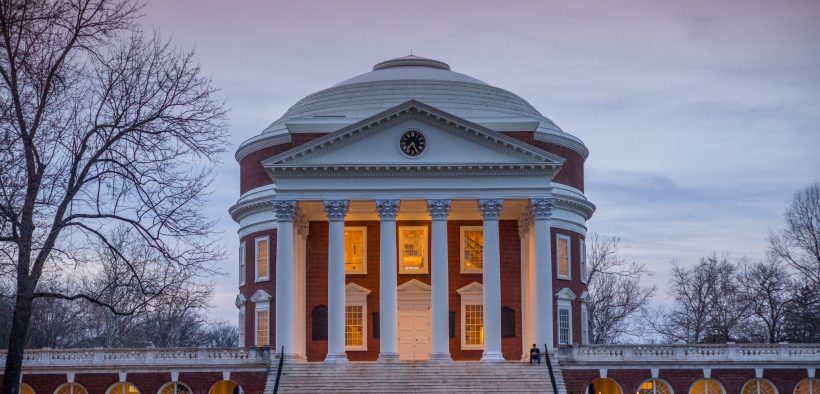Student Voices Concerns over Rolling Stones Article Response
Share

By Joshua D Huckleberry
Last November, Rolling Stone Magazine released an article that made serious accusations of immense negligence at the University of Virginia and the Greek Life at the school. Amongst the accusation was the claim that the University had ignored a sexual assault that was extraordinarily heinous in nature. While the University took immediate action against the fraternities following the release of the article, as time went on, it became clear that the article was filled with inconsistencies. This resulted in Rolling Stone Magazine coming forth and admitting that the story was fabricated and apologizing for their lack of effort in confirming the veracity of the claims.
The fraternities at the University of Virginia find themselves opening their doors once again. For most students, the end of the Rolling Stone debacle is a return to some kind of normalcy. For many though, students and faculty alike, “Jackie’s” story caused significant damage. For those weeks that the article galvanized national attention, UVA’s campus fell victim to the negative results of the article. The smoke may have cleared the Virginia campus, but a dark shadow still looms over Charlottesville, as well as every American university.
The Rolling Stone article, published on the November 19th, which asserted that a brutal sexual assault had occurred in the Phi Kappa Psi fraternity house on the September 28th, 2012, kicked off a surge of public emotion. One day after publication, the Phi Kappa Psi house was vandalized. Without any proof as to the alleged sexual assault, the University of Virginia placed the fraternity under suspension along with all other forms of Greek Life. Innumerable petitions flooded the campus and internet demanding mass resignations of administrative officials and the banning of the Phi Kappa Psi fraternity. All of this occurred without a shred of any evidence that the members of the Phi Kappa Psi chapter at UVA had done anything other than the initial false allegation.
As we now know, the claims made by the anonymous “Jackie” were entirely without basis. This isn’t to say that rape on college campuses is not a significant issue. If the claims made by “Jackie” and her supporters had been true, the perpetrators would have deserved to be punished severely to the full extent of the law. Provided, of course, that the punishment had been preceded by a methodical and efficient verification of the events and relevant facts.
However, such was not the case as “Jackie’s” claims were entirely without veracity. However, as we have seen in recent events that have come to the media’s attention, the America school system has shown that sometimes students’ rights have fallen between the cracks. The members of the Phi Kappa Psi fraternity were presumed guilty long before any reasonable thought and real investigation could occur. Their guilt was assumed not only by the student body but also by the University who wasted no time slapping the fraternity with strict restrictions and accusations. The fact is that, without a single scrap of evidence, the University of Virginia kowtowed to the mob of public opinion and took upon itself the duty of punishing students who had every right to the presumption of innocence. Real, tangible rights of the student-citizen have been stripped away by university administrations that would rather bludgeon those who will not submit to their authority.
The ideology that Virginia has embraced is one that places far more importance on the expediency of supposed “justice” than that of free speech and presumed innocence. It is an ideology that deprives the student of essential rights. This is not just a dogma that affects the University of Virginia though. In fact, it has tainted many colleges and universities in the United States. Of over 400 colleges and universities analyzed by the Foundation for Individual Rights in Education, 60% maintained policies that infringed upon students’ Constitutional rights.
The University of Virginia trampled the rights of its students. Virginia chose to pursue a course which treated their students like criminals rather than law-abiding student-citizens. Because of that, the reputation of the institution has been deservedly soiled. The trust that once existed between its administration and student body is now broken. Southwestern University and other schools like it have been lucky to avoid the kind of fiasco that rocked UVA. That said, luck is the offspring of preparation and vigilance. In order to prevent such disasters and preserve the students’ essential rights, we must remain on our guard.
The University must make passionate, proactive efforts if it wishes to retain its identity as an institution dedicated to the well being of all its students, regardless of race, gender, color, or creed. Policies that restrict a student’s ability to defend themselves from unsubstantiated speculation and conjecture radically erode not only the school’s reputation, but also the non-negotiable fundamental rights of each and every free person. These policies include any which can be seen to limit the speech of the student or their ability to consult with legal counsel. The latter of which, sadly, is an accepted practice at Southwestern University. That is to say that it is Southwestern University policy to disallow students from seeking the counsel of a legal representative. When such protocol is embraced by an institution that claims to encourage virtues of honesty and integrity, it can be seen as hypocritical at best. At worst, it is a tacit approval of values that run entirely against those of the Constitution in favor of expediency. Such policies need to be reevaluated in light of the fallout from the UVA scandal and the spread of the poisonous ideologies that made it possible. The absence of a mindset that treats students as citizens does not merely enable disasters like the University of Virginia’s, it ensures them with the only variable being that of time.
